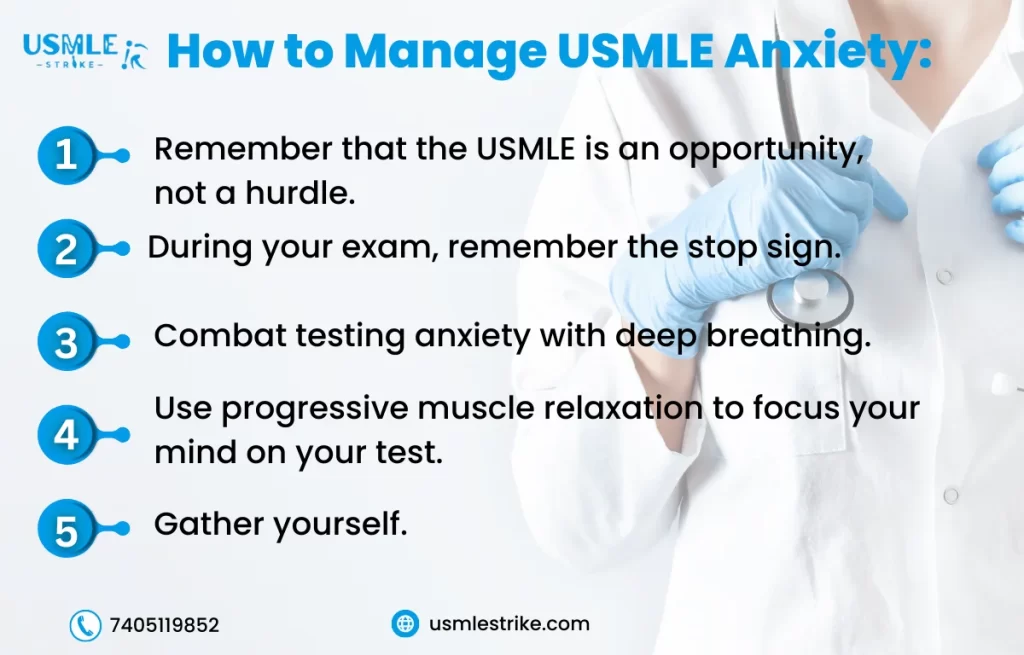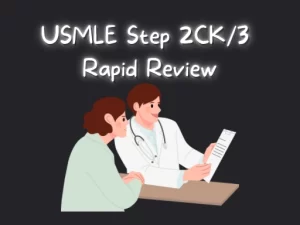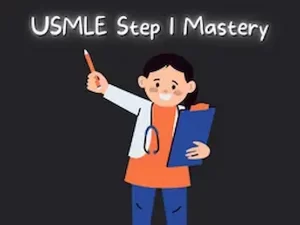Have you ever experienced the feeling of walking into an exam room to write a test you have been studying hard for only to be overwhelmed by anxiety and stress? This is a common phenomenon known as test anxiety, and it can negatively affect your grades and test scores, even if you have prepared adequately.
By learning strategies to how to Overcome USMLE Step 1 Exam Anxiety before and during exams, such as relaxation techniques, mindfulness, and positive self-talk, you can help minimize the impact of anxiety and achieve your true potential.

What is USMLE Anxiety?
USMLE anxiety refers to the feelings of nervousness, fear, or apprehension experienced by medical students or graduates preparing to take the United States Medical Licensing Examination (USMLE). It can be caused by various factors such as the importance of the exam, high stakes involved, and the difficulty of the content, among others. How To Overcome USMLE Step 1 Exam Anxiety is crucial for optimal exam performance.
How to Overcome USMLE Step 1 Exam Anxiety?
The USMLE (United States Medical Licensing Examination) is a challenging test that can cause significant anxiety for medical students and professionals. However, there are several strategies that can help individuals overcome USMLE anxiety and perform well on the exam.
How do I get over my Step 1 anxiety?
How To Overcome USMLE Step 1 Exam Anxiety, start by creating a structured study plan that breaks down material into manageable sections. Practice mindfulness techniques, like deep breathing and meditation, to maintain calmness. Regular exercise and adequate sleep can also reduce stress. Utilize practice exams to familiarize yourself with the test format and build confidence. Seek support from study groups or a mentor. Remember to take breaks and engage in activities you enjoy to maintain a balanced routine. Trust your preparation and stay positive.
8 Steps to Overcoming USMLE Step 1 Anxiety
Create a Structured Study Plan
A well-organized study schedule can significantly reduce anxiety. Divide the material into manageable sections and set specific goals for each study session. This approach helps to prevent feeling overwhelmed and ensures that you cover all necessary topics systematically.
Practice Mindfulness and Relaxation Techniques
Incorporate mindfulness practices such as deep breathing, meditation, or yoga into your daily routine. These techniques can help calm your mind, reduce stress, and improve your focus and concentration during study sessions and the actual exam.
Regular Physical Exercise
Exercise is a powerful stress reliever. Engaging in regular physical activity can improve your mood, increase energy levels, and enhance overall well-being. Aim for at least 30 minutes of moderate exercise most days of the week to help keep anxiety at bay and assist you in how to overcome USMLE Step 1 exam anxiety.
Ensure Adequate Sleep
Getting enough sleep is crucial for cognitive function and emotional regulation. Aim for 7-9 hours of sleep per night to ensure your brain is well-rested and capable of retaining and recalling information effectively.
Take Practice Exams
Familiarize yourself with the exam format and question styles by taking practice exams. This will help build your confidence and reduce fear of the unknown. Review your performance to identify and address weak areas in your knowledge.
Seek Support from Study Groups or Mentors
Joining a study group or seeking guidance from a mentor can provide valuable support. Discussing challenging topics with peers or mentors can deepen your understanding and provide different perspectives, making study sessions more effective and less isolating, helping you how to overcome USMLE Step 1 exam anxiety.
Maintain a Balanced Routine
Incorporate breaks and leisure activities into your study schedule. Engage in hobbies, spend time with friends and family, and ensure you take time to relax. This balanced approach helps prevent burnout and keeps your mind fresh and motivated, aiding you in how to overcome USMLE Step 1 exam anxiety.
Stay Positive and Trust Your Preparation
Cultivate a positive mindset by focusing on your progress and achievements. Remind yourself of the effort and dedication you have invested in your preparation. Trust that you have the knowledge and skills to succeed and approach the exam with confidence.
By following these eight steps, you can effectively manage and reduce anxiety, allowing you to perform your best on the USMLE Step 1 exam. Remember, a calm and focused mind is key to success in how to overcome USMLE Step 1 exam anxiety.
How to Manage USMLE Step 1 Test Anxiety with Ease
Test anxiety is a common challenge that many students face when preparing for the USMLE Step 1. However, with the right strategies, you can manage your USMLE Step 1 test anxiety effectively and perform at your best. Here’s how to tackle it:
- Understand Your Anxiety: Recognize that anxiety is a natural response to the pressure of a high-stakes exam. Acknowledge your feelings, but don’t let them control you. Identifying the root causes of your anxiety can help you address them directly and assist in how to overcome USMLE Step 1 exam anxiety.
- Develop a Positive Mindset: Replace negative thoughts with positive affirmations. Remind yourself of your preparation and past successes. A positive attitude can significantly reduce USMLE Step 1 anxiety and boost your confidence.
- Practice Relaxation Techniques: Incorporate relaxation exercises such as deep breathing, meditation, or progressive muscle relaxation into your daily routine. These techniques help calm your mind and body, making it easier to focus on your studies.
- Simulate Test Conditions: Reduce anxiety by familiarizing yourself with the test environment. Take practice exams under timed conditions in a quiet setting similar to the actual test day. This reduces the fear of the unknown and builds your test-taking stamina, helping you learn how to overcome USMLE Step 1 exam anxiety.
- Create a Support System: Share your concerns with friends, family, or fellow students who understand what you’re going through. Having a support system can provide emotional relief and practical advice to manage USMLE Step 1 anxiety.
- Prioritize Self-Care: Ensure that you are getting enough sleep, eating well, and exercising regularly. Good physical health can greatly reduce stress levels and improve cognitive function, helping you manage anxiety more effectively.
- Break Down Study Sessions: Instead of long, overwhelming study sessions, break your study time into manageable chunks. Use techniques like the Pomodoro method to stay focused and reduce anxiety by accomplishing small goals.
- Seek Professional Help if Needed: If your USMLE Step 1 anxiety is overwhelming, don’t hesitate to seek help from a mental health professional. They can offer strategies and support tailored to your specific needs.
What Are the Most Effective Study Techniques?
- Active recall: Use spaced repetition to retain information.
- Practice questions: Focus on solving USMLE-style questions regularly.
- Focused study blocks: Study in short, focused sessions with breaks in between.
- Mnemonics: Create memory aids for complex topics.
- Simulate exam conditions: Take full-length practice exams to prepare.
5 Ways To Squash Your USMLE Step 1 Anxiety
- Prepare Early: Start studying well in advance to avoid last-minute cramming.
- Practice Mindfulness: Engage in mindfulness exercises to relax your mind and body.
- Stay Organized: Create a study schedule to stay on track and reduce overwhelm.
- Get Enough Sleep: Prioritize rest to improve memory retention and focus.
- Talk to Others: Discuss your concerns with peers or mentors to ease anxiety.
Conclusion
Thus, overcoming test anxiety during the USMLE can be a challenging but achievable goal. By implementing various strategies, such as starting early, developing a study plan, practicing mindfulness and relaxation techniques, getting enough sleep and exercise, staying positive, seeking support, taking practice exams, and planning for test day, individuals can reduce their how to overcome USMLE step 1 exam anxiety and perform well on the exam.





